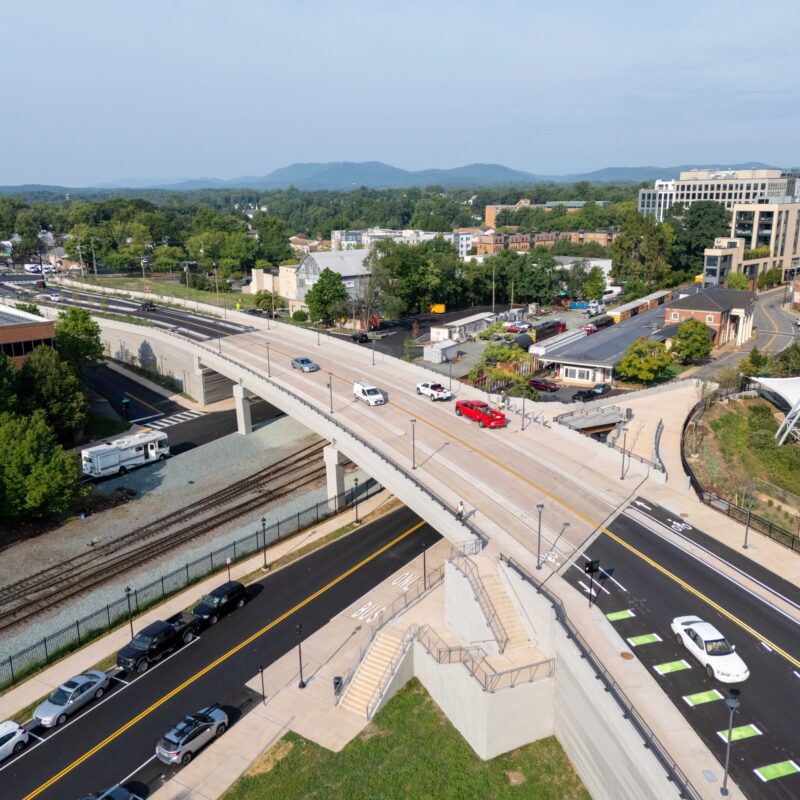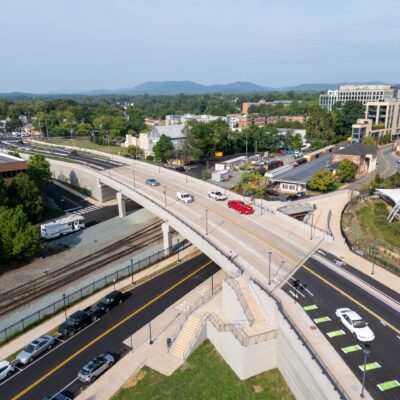Will the new year finally bring a resolution to the controversial water supply debate? After Black & Veatch recently offered City Council its latest cost estimates for the city’s competing Ragged Mountain dam proposal, the Albemarle County Board of Supervisors proposed a meeting between the two localities to discuss their differences.
|
The Lower Ragged Mountain Dam needs a solution to its spillway deficiency by May to satisfy the Virginia Soil & Water Conservation Board. |
“I am committed to [a resolution],” says Supervisors Chair Ann Mallek. “We don’t have an option to fail here. That’s why we have been trying to take baby steps forward all along.”
However, baby steps may turn to bigger strides. In November, Virginia Soil & Water Conservation Board capped temporary operating permits for two Ragged Mountain dams at six months, essentially giving the Rivanna Water & Sewer Authority (RWSA) until May to select dam safety measures and procure construction permits to address an insufficient spillway. RWSA Executive Director Tom Frederick called the deadline challenging, “even if a decision were made immediately on a specific initial pool height for a new earthen dam.
“Every day we lose by not deciding will further reduce the likelihood of success,” wrote Frederick in an RWSA update to county supervisors.
Black & Veatch’s updated estimates were good news for City Council, which prefers a phased increase to the Ragged Mountain Dam reservoir pool. Peak construction estimates for Ragged Mountain Dam now stand at $13.5 million to $19.5 million—a $1.2 million increase from the previous high-end projection. A 13′ reservoir raise would cost between $10.8 million and $15.5 million. In October, Albemarle County authorized Schnabel Engineering to proceed with a final design for a new earthen dam, which the firm put at $28 million to $36 million.
Last week, Black & Veatch engineer Greg Zamensky told City Council that his firm’s dam proposal will “be safe and satisfy dam safety criteria.” Frederick asked council whether it was worth taking the time to determine if the city’s alternative to the 2006 plan—phased dam construction and maintenance dredging at Ragged Mountain Reservoir—was cheaper while construction costs are low.
“The earthen dam design is far more advanced, which means there has been far more investigations and there are less uncertainties,” he tells C-VILLE. “Uncertainties can sometimes become hidden costs that add to the cost of an alternative that may not be reflected in early assumptions.”
City Council is expected to vote on whether to proceed with a final design for a phased Lower Ragged Mountain Dam construction in the next month. While Albemarle supervisors declined an offer from the Department of Environmental Quality (DEQ) to mediate a city-county water plan discussion, Mallek says she still anticipates a meeting between the two governing bodies.
“[Supervisors] did not feel that it was advantageous to get into a mediation situation with the DEQ. That’s not their role. They are deciders, not the people who make the application,” she says. “I am really looking forward to conversations in the next week or so, and we are hopefully to the point that we can resolve things.”
/Charlottesville-Aerials-4no.jpg)





